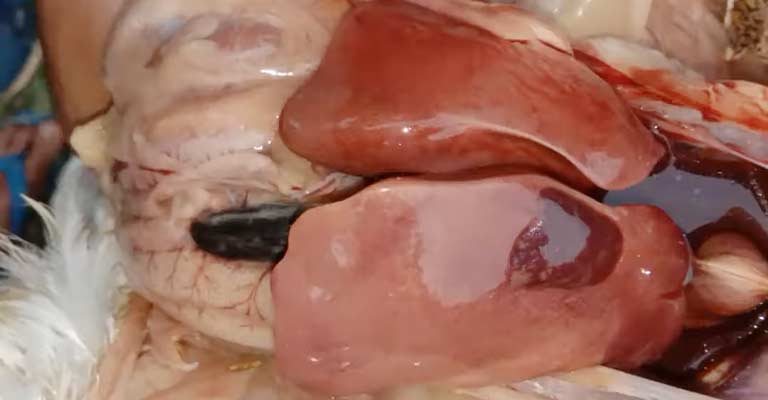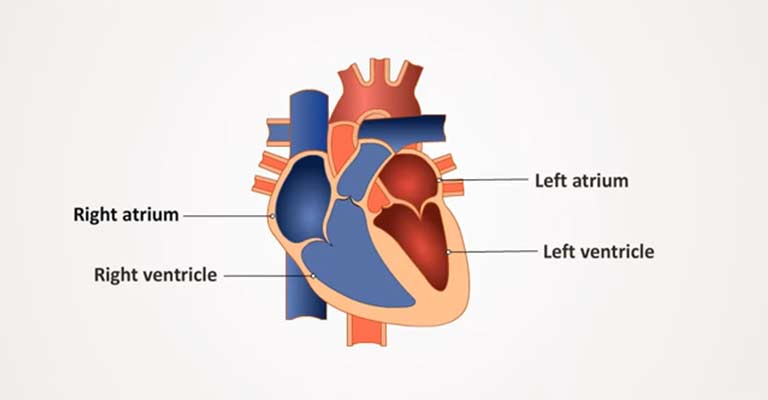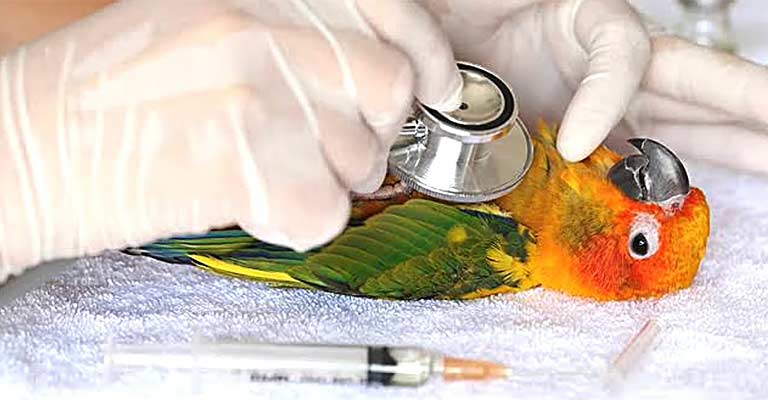In the intricate world of avian health, the cardiovascular system stands as a vital orchestrator of well-being in our feathered companions.
Birds, with their unique physiology, are susceptible to various heart and blood vessel disorders that can significantly impact their quality of life.
Recognizing the signs and understanding the nuances of these conditions are essential for bird owners and caregivers.
This exploration delves into the complexities of heart and blood vessel disorders in birds, shedding light on symptoms and treatments to ensure the longevity and vitality of our avian companions.

Heart And Blood Vessel Disorders In Birds
In the intricate world of avian health, the cardiovascular system plays a vital role in sustaining the well-being of our feathered companions.
Here are the types of heart and blood vessel disorders in birds:
Avian Atherosclerosis
Avian atherosclerosis involves the accumulation of fatty deposits on the inner walls of arteries, restricting blood flow. Common in captive birds, this disorder may lead to cardiovascular complications, emphasizing the need for a heart-healthy diet and lifestyle.
Cardiomyopathy
Cardiomyopathy refers to diseases affecting the heart muscle, leading to impaired pumping function. Birds with cardiomyopathy may display lethargy, labored breathing, and a decreased ability to engage in physical activities, necessitating prompt veterinary attention.
Heartworm Disease
Similar to its impact on dogs and cats, heartworm disease in birds involves parasitic infestation in the heart and blood vessels. Mosquito-borne, this condition can result in respiratory distress and even heart failure if left untreated.
Arrhythmias
Avian arrhythmias manifest as irregular heartbeats, impacting the heart’s ability to pump blood effectively. This disorder may be congenital or acquired and can lead to various complications, emphasizing the importance of monitoring cardiac function in birds.
Valvular Heart Disease
Valvular heart disease involves dysfunction or malformation of the heart valves, affecting blood flow within the heart chambers. Birds with this disorder may exhibit symptoms such as coughing, exercise intolerance, and fluid retention, necessitating a thorough veterinary evaluation.
Endocarditis
Endocarditis is the inflammation of the heart’s inner lining, often caused by bacterial infections. Birds may experience systemic illness, weight loss, and respiratory distress. Early detection and targeted antibiotic treatments are crucial for managing this condition.
Hypertension (High Blood Pressure)
Birds, particularly those with underlying health issues, can develop hypertension. This disorder can strain the heart and blood vessels, leading to organ damage. Monitoring blood pressure and addressing contributing factors are vital in managing avian hypertension.
What Are Some Symptoms Of Heart And Blood Vessel Disorders In Birds?

The intricate cardiovascular system of birds is susceptible to various disorders that can significantly impact their health and well-being.
Here are some common symptoms associated with these conditions in avian companions:
Lethargy and Weakness
Birds with heart and blood vessel disorders often exhibit lethargy and weakness. Reduced energy levels may result from impaired blood flow and compromised oxygen delivery to tissues, highlighting the need for prompt veterinary assessment.
Labored Breathing
Laboured breathing is a hallmark symptom of cardiovascular issues in birds. Conditions such as cardiomyopathy or congestive heart failure can lead to respiratory distress. Observing changes in breathing patterns is essential for identifying potential cardiac concerns.
Exercise Intolerance
Avian companions with heart and blood vessel disorders may display reduced exercise tolerance. Reluctance to engage in physical activities or noticeable fatigue during normal play or flight can signal underlying cardiovascular challenges.
Coughing or Respiratory Distress
Conditions like valvular heart disease or endocarditis may manifest as coughing or respiratory distress in birds. These symptoms can indicate fluid accumulation in the lungs or compromised respiratory function, requiring immediate veterinary attention.
Fluid Retention
Fluid retention, often seen as swelling in the abdomen or extremities, is a common symptom of heart and blood vessel disorders. This occurs when the cardiovascular system struggles to maintain proper fluid balance, emphasizing the need for a thorough diagnostic evaluation.
Changes in Color or Texture of Mucous Membranes
Alterations in the color or texture of a bird’s mucous membranes (such as the gums and inside the beak) can be indicative of cardiovascular problems. Pale or bluish discoloration may suggest inadequate oxygenation of the blood, prompting a comprehensive veterinary examination.
Sudden Weight Loss
Sudden weight loss is a concerning sign in birds with cardiovascular issues. It may result from decreased appetite, reduced nutrient absorption, or increased energy expenditure due to the heart’s inefficiency. Monitoring weight changes is crucial for early detection and intervention.
What Are The Treatments For Heart And Blood Vessel Disorders In Birds?

The intricate cardiovascular system of birds can be prone to various disorders, necessitating careful attention and timely intervention. Treatment strategies for heart and blood vessel disorders in avian companions aim to alleviate symptoms, improve cardiac function, and enhance overall well-being.
Here are some common treatments tailored to address these conditions:
Medication for Cardiac Function
Pharmacological interventions, such as medications to strengthen cardiac contractions or regulate heart rhythm, are often prescribed for birds with heart and blood vessel disorders.
These medications aim to improve overall cardiac function, manage symptoms, and enhance the bird’s quality of life.
Dietary Modifications
A heart-healthy diet is essential in managing cardiovascular disorders in birds. Specialized avian diets, low in sodium and fat, may be recommended to alleviate strain on the heart.
Adequate nutrition supports overall health and contributes to the management of specific cardiac conditions.
Fluid Management
Controlling fluid balance is crucial for birds with conditions leading to fluid retention. Diuretic medications may be prescribed to help eliminate excess fluid.
Monitoring and managing fluid levels are vital in preventing complications associated with cardiovascular disorders.
Antibiotic Therapy
If a heart condition is linked to bacterial infections, antibiotic therapy is essential. Conditions like endocarditis often require targeted antibiotic treatment to resolve the underlying infection and mitigate the risk of further cardiac damage.
Oxygen Therapy
In cases where respiratory distress is a prominent symptom, supplemental oxygen therapy may be administered. This supportive measure ensures that the bird receives adequate oxygen, alleviating respiratory strain associated with certain heart and blood vessel disorders.
Surgical Interventions
Severe cases, such as heartworm disease or certain congenital defects, may require surgical interventions. Procedures to remove parasites, repair damaged vessels, or correct structural abnormalities may be considered to improve cardiac function.
Lifestyle Adjustments
Implementing lifestyle changes is essential in managing heart and blood vessel disorders. Providing a stress-free environment, maintaining appropriate temperature and humidity levels, and minimizing potential sources of stress contribute to the overall well-being of birds with cardiovascular challenges.
Understanding the specific nature of the avian cardiovascular disorder is crucial for tailoring an effective treatment plan.
Regular veterinary check-ups, ongoing monitoring, and a collaborative approach between bird owners and veterinarians contribute to the successful management of these intricate health issues.
FAQs
Can heart and blood vessel disorders in birds be prevented?
While some factors may be genetic, maintaining a heart-healthy diet, providing a stress-free environment, and regular veterinary check-ups contribute to preventive care.
How are heartworm disease and parasitic infestations treated in birds?
Heartworm disease and parasitic infestations require targeted treatments, including medications and, in severe cases, surgical interventions to remove parasites.
Are there specific medications for managing avian heart conditions?
Yes, medications to enhance cardiac function, regulate heart rhythm, and manage symptoms are commonly prescribed. Dietary modifications also play a crucial role in treatment.
Can birds with heart and blood vessel disorders lead a normal life?
With proper management, including medications, dietary adjustments, and lifestyle changes, many birds can lead fulfilling lives. Regular veterinary monitoring is essential.
Are certain bird species more prone to heart and blood vessel disorders?
Various bird species can be susceptible, but factors such as age, genetics, and environmental conditions influence susceptibility. Regular veterinary check-ups help monitor Avian’s cardiovascular health.
Conclusion
Navigating the delicate realm of avian health, the awareness and management of heart and blood vessel disorders emerge as pivotal factors in the well-being of our feathered friends.
From early recognition of symptoms to tailored treatments and lifestyle adjustments, a holistic approach ensures the best possible care for birds facing these intricate health challenges.
Bird owners and caregivers, in collaboration with veterinarians, play a crucial role in maintaining the cardiovascular health of their avian companions.
Embracing proactive measures and staying vigilant to potential signs contribute to fostering a harmonious and healthy bond between birds and their caretakers.